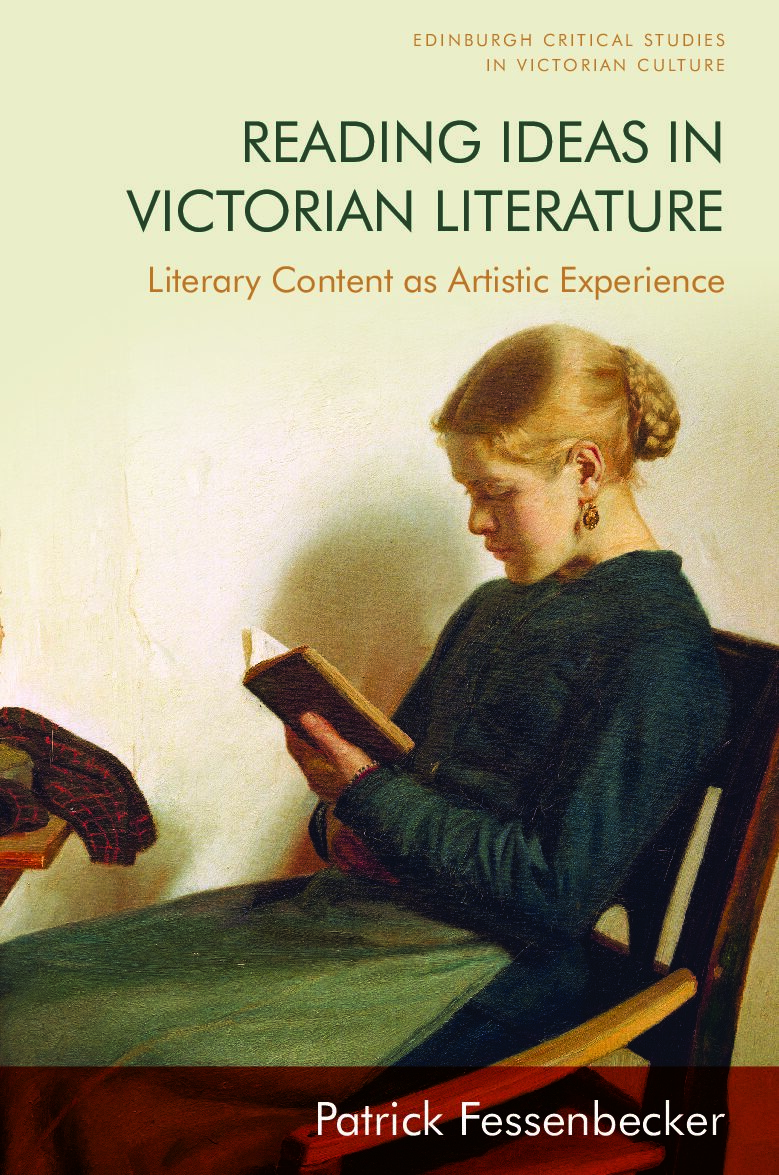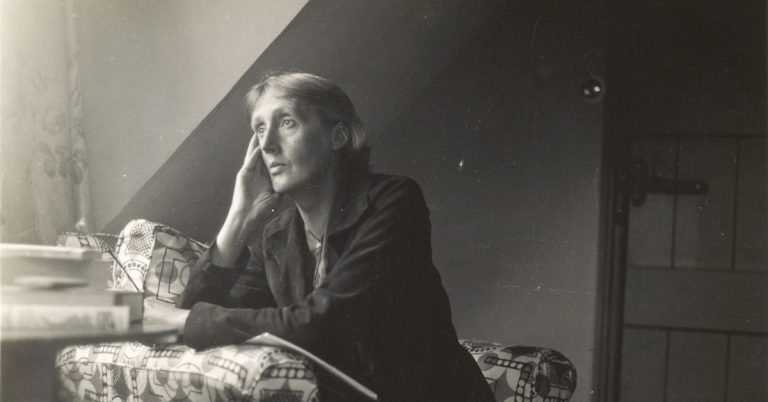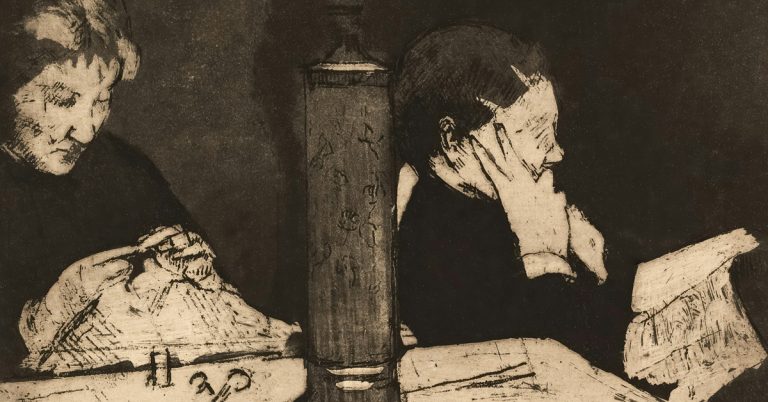
Anglophone literary criticism has over the last decade engaged in a searching analysis and critique of its own methods. Perhaps surprisingly, much of that debate has considered *how* one should engage in literary interpretation—whether one should read closely or from a distance, interpret in a paranoid or reparative way, emphasize the work’s surface or depth, engage in “critique” or some other mode of attachment—and rather less *why*. But we might benefit from asking that question more openly: what, after all, is the point of literary criticism? Why does this practice merit the sustained intellectual energy so many scholars have devoted to it?
The Special Pleading of Literary Critics
The problem is compounded when one considers a few obvious issues with the answers most often implied in contemporary scholarship. Two accounts of the goals of literary study are particularly common. The first, broadly speaking, is that the careful study of literary works offers historical insights. Whether one treats the various texts as accounts analyzing their period of creation or as sources whose formal structures interestingly reflect that period, the study of literature is on this view an important supplement to the study of history. The second account, again speaking broadly, is that studying literature is philosophically useful.
Perhaps the philosophical insights lie implicit in some dimension of the work’s form or in the experience it creates in readers, but the goal of writing scholarly interpretations of literature is to engage in some philosophical conversation interesting on grounds independent of the specific literary work. And the accounts can of course be combined (often they are so): a work is philosophically interesting because the contingencies of its historical environment are revealingly different from our own.
But phrased this starkly, problems are apparent. If one’s goal is philosophical or theoretical, then why exactly is the sustained close interpretation of a literary text a thing worth doing? Why not just write about whatever issue one is concerned with directly, and mention the literary text only when and if it happens to be useful in developing a thought? Similarly, if one’s goal is historical analysis, why not simply do that?
Perhaps there will occasionally be some historical questions where the close study of literary works is useful, but there doesn’t seem to be any reason in principle to separate out literary study from cultural history more generally. In other words the repeated emphasis on the benefits of literature for these separate projects begins to look like special pleading. There are scholars of literature who have already decided to study this material and are in search of reasons why that study is worth doing, rather than researchers genuinely pursuing the questions that supposedly justify their projects.
An Example: Jane Austen on Love
Undoubtedly crude and unfair as this characterization of the field is, let try to me offer as a hopefully neutral example of this problem my own work. In reading Jane Austen some years ago, I had the sense that her account of the power struggles within a romantic relationship paralleled Hegel’s account of the intersubjective struggle in the path towards self-consciousness. Hegel’s view is complex, but briefly: we each begin by trying to force others to recognize us, but this domination is ultimately unsatisfying, and for full self-awareness we depend on freely receiving recognition from someone whom we have also recognized as fully self-aware.
It seemed to me that characters like Elizabeth Bennet and Emma Woodhouse engaged in a similar process. Each began with a confident sense of her own moral superiority and attempted to judge another person on that basis, but soon found that a deeper connection was possible only upon acknowledging their own errors and the validity of the other person’s judgment. But I had a tough time seeing why, exactly, this connection was a point worth making. In search of a justification, I wrote in my 2011 article that Jane Austen asks “What happens when the Lord’s attempt to dominate the Bondman fails?”
Now, if that was really the point of the article, then one might reasonably say: this is an odd and indirect way to develop the argument. If the goal is to make a philosophical point about Hegel’s account of intersubjectivity and the psychological structure of self-consciousness, just go and say that. Don’t bother with a reading of Jane Austen. That’s perhaps an interesting detail for Patrick Fessenbecker’s intellectual biography, but not an essential or even useful way to develop an argument about and with Hegel.
Paraphrase Is Not a Heresy
Thinking about my essay and other scholarship like it, I realized that the justification of much literary criticism isn’t what it appears to be. The comparison to Hegel is useful—if I may be so bold as to claim it is useful—not because Austen productively disagrees with Hegel, but because the comparison clarifies the nature of Austen’s thinking. Jane Austen’s ideas about love and power may not be novel or unique, but they are insightful, and her insightful ideas are part of what makes her novels worth reading. What my essay really does, then, is narrate a way of experiencing Jane Austen, and show how one might find her work valuable. In other words, my essay represents itself as if it’s doing philosophy. But it’s actually doing art criticism.
The implicit contention here—that thinking about the ideas in a work of art is a way of enjoying and appreciating it—is controversial. It has seemed to many writers in the history of the philosophy of art and literary theory that taking some idea in a work and asking whether it’s true is a fundamentally different kind of thing from experiencing it as art. To treat a work of art as a series of claims with which a reader might agree or disagree has in fact seemed like a profound violation of its aesthetic nature. It is to commit, in Cleanth Brooks’s famous statement, “The Heresy of Paraphrase.” But what the vast amount of scholarship paraphrasing literary works demonstrates, I realized, is that Brooks was profoundly wrong. Paraphrasing literature for its ideas can be a way of valuing and even loving it.
Shuffling the Formalist Canon
Taking this way of experiencing literature seriously also involves a reconsideration of the evaluative standards that have structured literary history. Many views of literary aesthetics are still informed by the practice of high modernism, and the assertion of a group of writers from Oscar Wilde through Virginia Woolf and Archibald MacLeish that works of literary art do not say things and that it’s a profound mistake to praise or condemn them on the basis of what they say.
In so doing, they were of course reacting to the practice of their Victorian predecessors, many of whom were quite open about the fact that they were using their novels to say things and that they were asserting particular ideas because they believed them. If we are looking to understand what it means to use a literary work to say something, then, Victorian narrative offers a particularly clear group of examples. So my book, Reading Ideas in Victorian Literature: Literary Content as Artistic Experience, uses the sophisticated moral philosophy in three writers—Anthony Trollope, George Eliot, and Augusta Webster—to demonstrate how one might value a story for what it says.
Criticism as Ostension
But developing the observation that paraphrase is not in fact a heresy into a method for conducting literary criticism requires more than just examples. So three theoretical chapters articulate and defend the method, borrowing resources from the philosophy of art in the analytic tradition and from methodological debates in the history of ideas. In the first, I note that compared to “form” the concept of literary “content” is surprisingly lacking in explications—most dictionaries of literary terms lack an entry for “content,” for instance—and defend a conception of content as everything in a work that can be paraphrased.
In the second, I argue that reading for the intellectual content of literature can be a way of recognizing its historicity: acknowledging the historical dimension of a literary work does not require privileging its formal features. And in the final theoretical chapter, I pull out the implications of the view for what the point of literary criticism really is: at the end of the day, much literary criticism is a way of pointing.
The critic highlights specific features of a work while minimizing others and accordingly shows how to experience it in a certain way. To paraphrase the ideas in a novel like Daniel Deronda is thus to try to make available for other readers a particular way of engaging it. And in the last analysis my book stems from the feeling that much of what is valuable in books like Deronda is what they have to say, and that emphasizing the ideas is in such works is not a violation of their aesthetic nature but a way of respecting it.
About the author
Patrick Fessenbecker is Assistant Professor, Program in Cultures, Civilizations, and Ideas, Bilkent University. You can find out more about his new book, Reading Ideas in Victorian Literature on our website.





